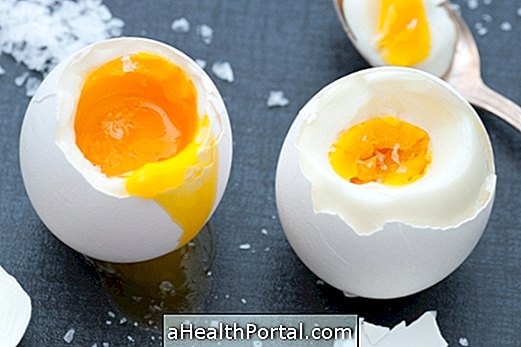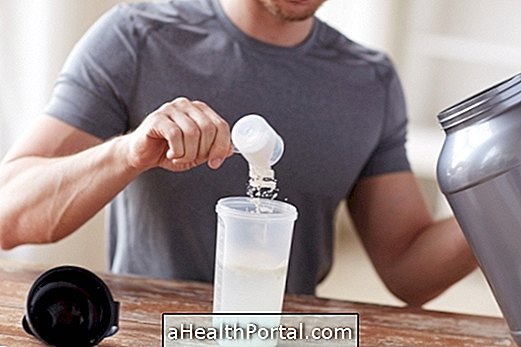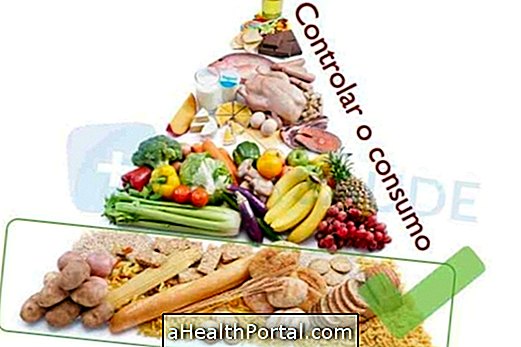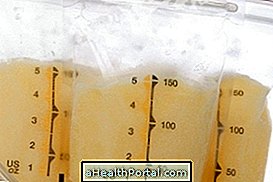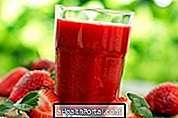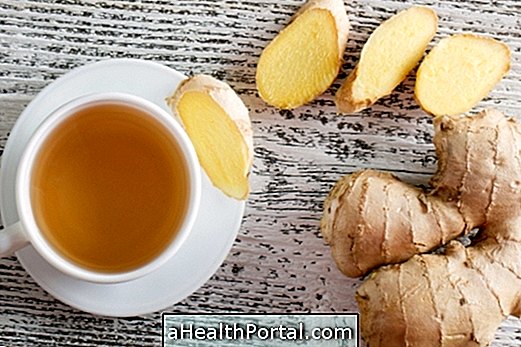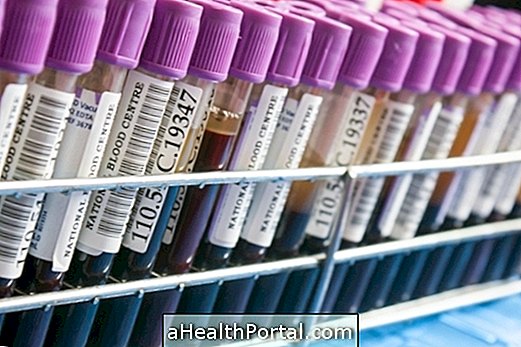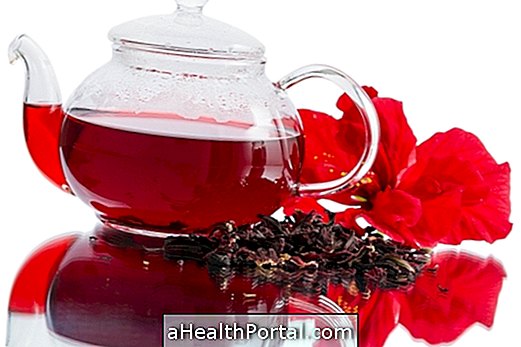Regardless of the belly being swollen because of gas, menstruation, constipation or fluid retention in the body, to relieve in 3 or 4 days the discomfort, great strategies include avoid eating food with too much salt or seasoning ready, decrease milk consumption, pasta and breads in general and avoid using refined sugars.
In addition, taking fennel, lemon balm or mint tea during the day, calms the production of gas and helps in its elimination, especially when the swelling of the abdomen occurred because of ingestion of expired food or contaminated with any bacteria that have caused gastroenteritis.

Other major causes of swollen belly may be gastritis, irritable bowel or indigestion. And in such cases, when swelling accompanies pain and is very frequent or does not completely relieve it is important to consult a gastroenterologist to do exams and begin treatment for the diagnosed illness.
What to do if it is gases
To decrease the formation of gases eat natural yoghurt or with active bifida daily, at breakfast for example is a good strategy. These yogurts have bacteria that regulate food fermentation and gas production.
In addition, it is also possible to add probiotics in capsule or powder, which are bought in pharmacies or in stores specialized in natural products, balance the intestinal flora, reducing discomfort with swelling and gas.
Exercising for belly swelling
Besides eating, there are some exercises that also help to stop the bloating, such as:
Exercise 1
A good exercise for swelling in the belly is to lie flat on the stomach by bending and holding a knee, pressing it towards the belly. This exercise should be done in turn for each of the legs and should be repeated between 20 to 30 times for each leg.

Exercise 2
Another excellent exercise to stop the swelling in the belly, is to kneel and try to sit on the heel, then stretching forward to extend the arms. This exercise allows the alignment of the end of the intestine with the anal sphincter, which facilitates the escape of gases.
Here's how to do this exercise by watching the video:

In addition, walking is also a great exercise to help eliminate excess gas accumulated during the day.
Other tips to stop bloating in the belly
Other important tips that may help decrease belly bloating include:
- Eat a plate of vegetables, cooked vegetables or raw leafy in the meal, as they are rich in fiber and facilitate digestion.
- Take a warm tea in the morning fast of fennel, lemon balm or mint;
- Avoid eating more than one carbohydrate source in the same meal. For example, avoid foods like pasta with potatoes, rice with potatoes or rice with beans, for example;
- Reduce ingestion of soft drinks, artificial sweeteners and fizzy drinks;
- Avoid consumption of processed foods such as sausage, sausage, frozen lasagna or frozen pizzas, for example.
In addition, you can also try to stop the consumption of milk for 4 or 5 days in order to check if the swelling decreases. If this happens, there is the possibility of having lactose intolerance, an intolerance that causes gas and diarrhea. In addition to milk, gluten intolerance can also cause gas, learn how to identify this problem in 7 signs that you may have gluten intolerance.
But if the problem of the swollen belly is not the digestive difficulty, the intestines, or gas, it is best to seek a gastroenterologist so that the cause of the swelling can be diagnosed and treated correctly.
However, in some cases the swelling may be pregnancy or some disease, and in these cases it is common to have other symptoms, and it is recommended to consult the doctor as soon as possible. Know the common causes of swollen belly in 5 Common Causes of Swollen Belly.
